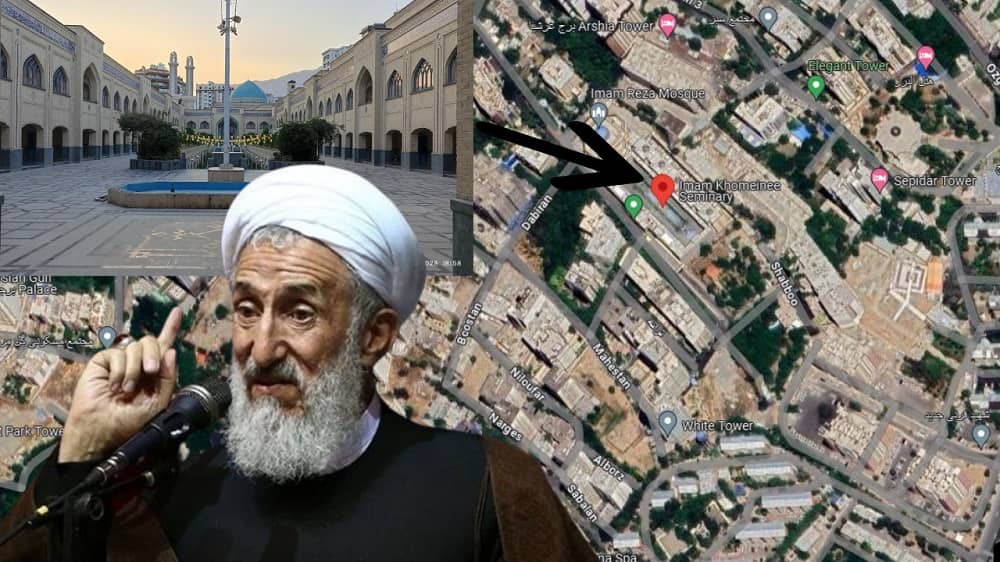

This news, exposing the depths of potential corruption within the religious elite, could significantly impact the socio-political landscape of Iran, especially amidst its ongoing struggles with poverty and corruption.
Kazem Sedighi, known for his role as a religious leader, reportedly utilized a family-owned enterprise to acquire large stretches of land near Tajrish, Tehran. The establishment of the Ozgel Seminary on a 20,000-square-meter plot, originally belonging to public institutions, marked the beginning of this controversial land acquisition. Furthermore, a 4,200-square-meter garden adjacent to the seminary was registered under the company “Peyrowan Andishehaye Qaem,” founded by Sedighi and his sons, which has raised eyebrows given the substantial value and strategic location of the property.
The involvement of Sedighi’s family members and close associates in the company, including positions of significant influence, has drawn attention to the intricate network facilitating these acquisitions. Notably, Javad Azizi, former head of Tehran Municipality’s property department, and Rezvaneh Ghavami, Sedighi’s daughter-in-law, play critical roles in the enterprise, highlighting the blend of familial and political connections.
#Corruption and Embezzlement Surface in #Iran as Kourosh Company’s iPhone Ponzi Scheme Collapseshttps://t.co/QkDosVgq4I
— NCRI-FAC (@iran_policy) February 20, 2024
In a further twist, the Sedighi family is implicated in other business ventures, including the mining sector and the hospitality industry, suggesting a widespread economic influence that goes beyond religious or community leadership. These revelations contrast starkly with the public image Sedighi has cultivated as a “servant of the revolution,” committed to fighting corruption and poverty.
The disclosure of these documents has sparked a public outcry, exacerbated by Sedighi’s initial response, where he deflected blame and claimed his signature was forged. His attempt to portray the allegations as attacks on the revolution and people’s beliefs has done little to quell the growing dissatisfaction among Iranians, who see this as indicative of broader systemic corruption.
Watch and judge how this #Iranian state official attempts to justify a $3.5 billion embezzlement case, while 80% of #Iran's population is having hard time to make ends meet. pic.twitter.com/4xCtfLmfWN
— NCRI-FAC (@iran_policy) December 18, 2023
Critics, including reformist Abbas Abdi, have seized on this scandal to highlight the hypocrisy of the ruling elite’s rhetoric versus their actions. The exposure of Sedighi’s lucrative land deals, alongside other MPs’ involvement in financially benefiting from their positions, undermines the government’s anti-corruption stance and fuels public indignation.
As the story unfolds, the leaked documents not only shed light on the intricate web of corruption entangling the religious and political elites in Iran but also challenge the integrity of the institutions they represent. This scandal may not reveal new elements of corruption within the Iranian regime but certainly adds fuel to the fire of public unrest and demands for transparency and reform.

MEK Iran (follow us on Twitter and Facebook), Maryam Rajavi’s on her site, Twitter & Facebook, NCRI (Twitter & Facebook), and People’s Mojahedin Organization of Iran – MEK IRAN – YouTu







